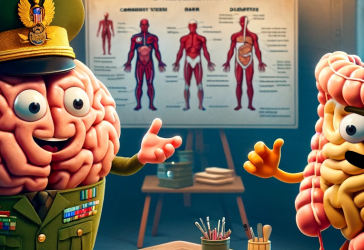Understanding and Overcoming Depression: A Path to Wellness
Depression is more than just feeling down; it’s a pervasive condition that can significantly impair one’s ability to function. Understanding the symptoms, recognising how they keep us trapped in the past, and knowing how to gain motivation and utilise resources are crucial steps toward recovery. At Empathy Rooms, we believe in the power of Cognitive Behavioural Therapy (CBT) to assist in this journey.
Symptoms of Depression
Depression manifests in various ways, affecting each individual uniquely. Common symptoms include:
- Persistent sadness or low mood: Feeling down most of the day, nearly every day.
- Loss of interest or pleasure: Activities that once brought joy become unenjoyable.
- Changes in appetite: Significant weight loss or gain without dieting.
- Sleep disturbances: Insomnia or excessive sleeping.
- Fatigue: Feeling tired despite rest.
- Feelings of worthlessness or guilt: Intense self-criticism or hopelessness.
- Difficulty concentrating: Trouble making decisions or staying focused.
- Physical symptoms: Aches, pains, or digestive problems without a clear physical cause.
- Thoughts of death or suicide: Recurring thoughts about death or self-harm.
If you or someone you know experiences these symptoms, seeking professional help is essential.
How Depression Keeps Us Trapped in the Past
Depression often roots itself in past experiences, creating a cycle of rumination and regret. This can manifest as:
- Negative thought patterns: Dwelling on past mistakes and failures.
- Emotional paralysis: Feeling stuck and unable to move forward.
- Self-blame: Internalising negative events as personal faults.
- Isolation: Withdrawing from social connections and support networks.
These patterns trap individuals in a state of inaction and hopelessness, perpetuating the cycle of depression.
Gaining Motivation to Get Out of Depression
Breaking free from depression requires effort and determination. Here are some strategies to regain motivation:
- Set small, achievable goals: Start with simple tasks to build momentum.
- Engage in physical activity: Exercise can boost mood and energy levels.
- Establish a routine: Structure can provide a sense of normality and control.
- Connect with others: Reach out to friends, family, or support groups.
- Practice self-care: Prioritise activities that promote well-being, such as healthy eating, adequate sleep, and mindfulness.
Using Resources to Help
Various resources are available to assist in managing depression:
- Therapy: Professional guidance from therapists or counsellors.
- Medication: Antidepressants prescribed by healthcare providers can alleviate symptoms.
- Support groups: Shared experiences can provide comfort and encouragement.
- Online resources: Websites, forums, and apps dedicated to mental health support.
- Books and articles: Educational materials to understand and combat depression.
How CBT Can Assist
Cognitive Behavioural Therapy (CBT) is a highly effective approach to treating depression. It focuses on identifying and challenging negative thought patterns and behaviours. Here’s how CBT can help:
- Identify negative thoughts: CBT helps individuals recognise harmful thoughts contributing to their depression.
- Challenge these thoughts: Therapists guide individuals in disputing irrational beliefs and replacing them with realistic ones.
- Develop coping strategies: Learning techniques to manage stress and prevent relapse.
- Behavioural activation: Encouraging engagement in activities that improve mood and provide a sense of accomplishment.
At Empathy Rooms, we utilise CBT to empower individuals to reclaim their lives from depression. By understanding and addressing the underlying cognitive and behavioural aspects, we help our clients develop the skills needed for long-term recovery.
Conclusion:
Depression is a challenging and often debilitating condition, but with the right tools and support, overcoming it is possible. By recognising the symptoms, understanding how it traps us in the past, finding motivation, using available resources, and leveraging the power of CBT, we can pave the way to a brighter, more fulfilling future. At Empathy Rooms, we are dedicated to guiding you through every step of this journey towards mental wellness.






